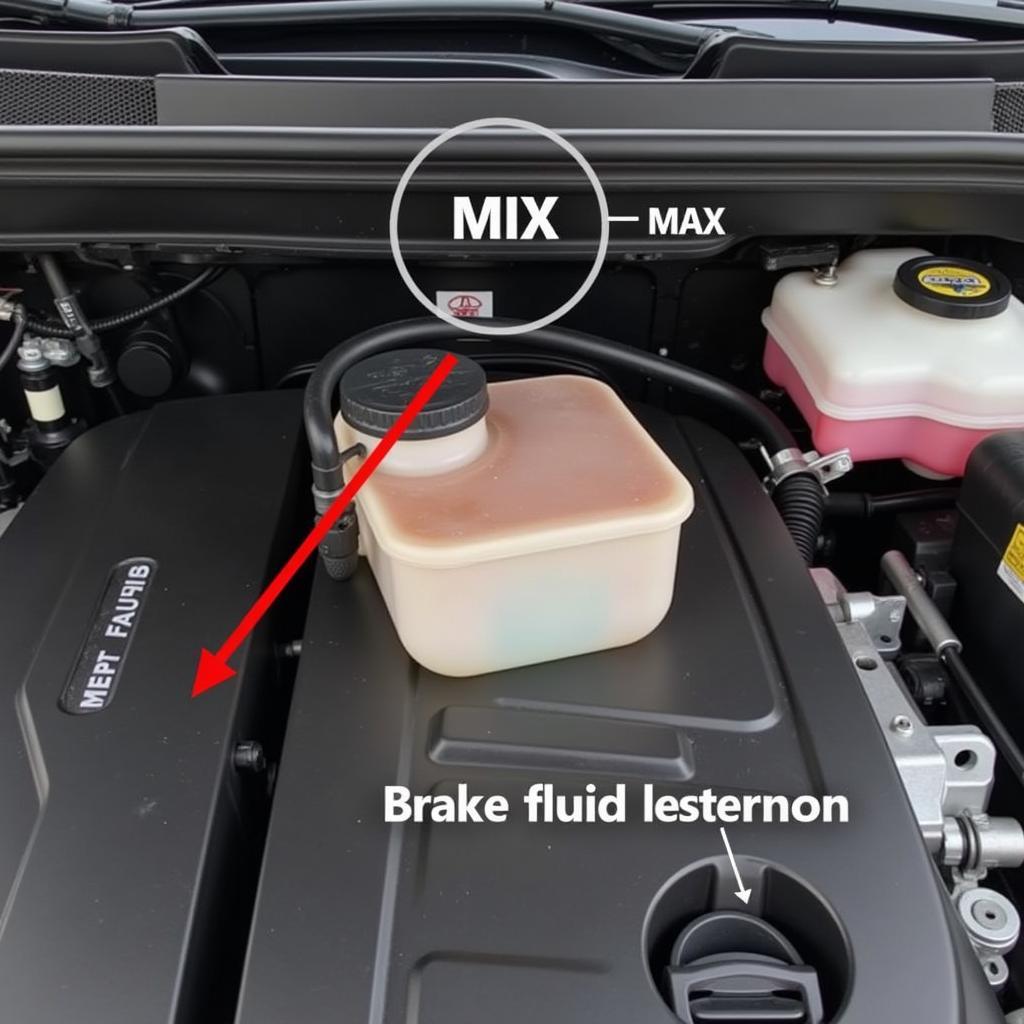So, you’re trying to start your car, but nothing happens. You’ve already checked the battery, and it seems fine. Now you’re probably wondering what else could be wrong. Don’t worry, this is a common issue, and many potential culprits are relatively easy to diagnose. This article will explore common reasons your car won’t start even if the battery isn’t the problem and guide you through possible solutions.
Beyond the Battery: Key Components to Check
While a dead battery is a frequent reason for starting problems, it’s crucial to remember other vital components within the starting system. When you turn the key, you’re initiating a chain reaction involving several parts working together to bring your engine to life. If any link in this chain fails, your car won’t start. Let’s look at some of these critical elements:
1. The Starter Motor: The Engine’s Workhorse
Your starter motor is responsible for cranking the engine to initiate the combustion process. If it’s faulty, your engine won’t turn over, even with a fully charged battery. You might hear a clicking sound when trying to start the car, indicating a failing starter motor.
2. The Alternator: Powering the System
The alternator charges the battery and powers the electrical components while the engine runs. A failing alternator can drain the battery even if it’s new, leading to a no-start situation. You might notice dimming headlights or flickering interior lights as early signs of a failing alternator.
3. Ignition System Issues: The Spark of Life
The ignition system is responsible for generating the spark that ignites the fuel in the engine cylinders. This system includes the ignition switch, ignition coil, spark plugs, and related wiring. Problems with any of these components, like worn-out spark plugs or a faulty ignition coil, can prevent your car from starting.
4. Fuel System Problems: Starved for Energy
A car needs fuel to run, and a problem with the fuel system can leave your engine unable to start. This could be a clogged fuel filter restricting fuel flow, a malfunctioning fuel pump unable to deliver fuel to the engine, or even a faulty fuel injector preventing the correct fuel-air mixture.
5. Electrical Gremlins: Tracing the Connections
Electrical issues are notorious for causing starting problems. Loose or corroded battery terminals, a faulty ignition switch preventing power from reaching the starter, or a blown fuse related to the starting circuit can all bring your car to a standstill.
Troubleshooting Tips: Getting to the Root of the Problem
While diagnosing the exact cause of a no-start situation often requires professional help, here are some troubleshooting tips that can help you pinpoint the issue:
- Check all connections: Ensure the battery terminals are clean, tight, and free from corrosion. Examine the connections to the starter and alternator for any loose or damaged wires.
- Listen carefully: When you try to start the car, pay attention to any sounds. A clicking sound usually indicates a starter motor problem, while a whining noise might point to a failing fuel pump.
- Inspect the fuel gauge: It sounds obvious, but make sure you have enough fuel in the tank. A faulty fuel gauge can sometimes give misleading readings.
- Consider the circumstances: When did the problem start? Did it occur after any recent repairs or modifications? Was the car parked for an extended period? Did you leave any lights on?
- Use a code reader: If your car has an onboard diagnostic system (OBD-II), a code reader can provide valuable insights into the problem by retrieving error codes stored in the car’s computer.
Seeking Professional Help: When DIY Isn’t Enough
If you’ve exhausted basic troubleshooting steps and your car still refuses to start, it’s time to call in the professionals. A qualified mechanic can diagnose the problem accurately using advanced diagnostic tools and provide the necessary repairs.
Don’t let a car that won’t start ruin your day. By understanding the potential culprits and following these troubleshooting tips, you can increase your chances of getting back on the road quickly. Remember, while some fixes might be simple DIY tasks, others require the expertise of a professional.
FAQs:
1. Could a bad alternator be draining my car battery even if it’s new?
Yes, a faulty alternator won’t charge the battery properly, even if it’s brand new, leading to a drained battery and starting problems.
2. How often should I replace my car battery?
Car batteries typically last between 3 to 5 years, but this can vary depending on factors like climate and driving conditions. It’s best to consult your car’s owner’s manual for recommended replacement intervals.
3. Can I jump-start my car if the alternator is bad?
While jump-starting a car with a bad alternator might get it running temporarily, it’s not a permanent solution. The underlying alternator issue needs to be addressed to ensure the battery charges properly.
4. Can extreme temperatures affect my car’s ability to start?
Yes, both extreme heat and cold can impact battery performance and other engine components, potentially leading to starting problems.
5. My car makes a rapid clicking sound when I try to start it. What does that mean?
A rapid clicking sound often indicates a weak or dead battery, a problem with the starter motor, or loose or corroded battery terminals.
Remember, while this article provides general guidance, always consult your car’s owner’s manual for specific information and recommendations for your vehicle model.

